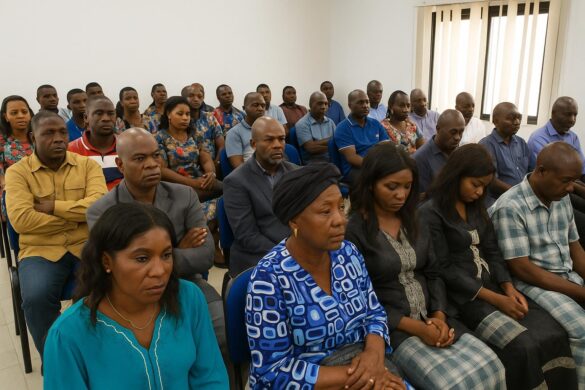Strategy Session to Revitalize Women’s Football
Women’s football in Congo-Brazzaville is preparing for a crucial revival. For two days in Brazzaville, the Congolese Football Federation, FECOFOOT, will host a Strategy Session aimed at stopping team withdrawals, rebuilding competitions, and convincing skeptics that the women’s game deserves equal attention from leaders and fans.
The FECOFOOT president confirmed the schedule on October 31, 2025, during a working session with club officials and the league’s organizing committee. His message was clear: the women’s championship is shrinking year by year, and leadership can no longer afford business as usual in the capital.
Workshops Targeting League and Governance Reform
Two workshops will anchor the Strategy Session. The first will evaluate the current national league format, which struggles with inconsistent schedules and travel costs. The second will examine restructuring the National Women’s League to give clubs clearer promotion pathways and predictable planning for broadcasters.
Organizers acknowledge, however, that the discussion cannot stop at competition design. Funding, infrastructure, and player welfare are major issues. For many clubs, a single trip outside Brazzaville can exhaust an annual budget. Training grounds often double as community pitches, while medical support relies on goodwill, not structured policy frameworks.
The Parity Message Gains Urgency
Parity is non-negotiable. “Women’s football deserves the same rigor, vision, and passion as men’s football,” he told participants, echoing a statement released by FECOFOOT earlier this year. This commitment, stakeholders say, must translate into concrete budgets rather than slogans and occasional seminars or workshops.
Combating Stereotypes and Social Barriers
The Strategy Session also revives a social debate dating back to the mid-1990s, when girls first dared to lace up their boots despite claims the sport was “almost forbidden” for them. Persistent stereotypes still influence family decisions, school schedules, and even resource allocations from some local administrators towards teams.
Scheduled expert speakers argue that awareness campaigns can reduce prejudice. Possible actions include televised public service announcements, school interventions, and father-daughter tournaments that showcase role models. “If communities witness the joy and discipline of these athletes, mindsets will adapt,” said a development official after preparations concluded.
Helping Players Balance Work and Sport
Another session focuses on the delicate balance players maintain between sport and livelihood. Many women work informal jobs or pursue studies; evening training can conflict with family expectations. Participants will explore scholarship options, flexible work arrangements, and collaboration agreements with universities to reduce dropout rates among athletes.
Stadium Access and Infrastructure Mapping
Infrastructure remains the obvious problem. Beyond national stadiums, regulation-size pitches with changing rooms are scarce. Clubs often negotiate time
